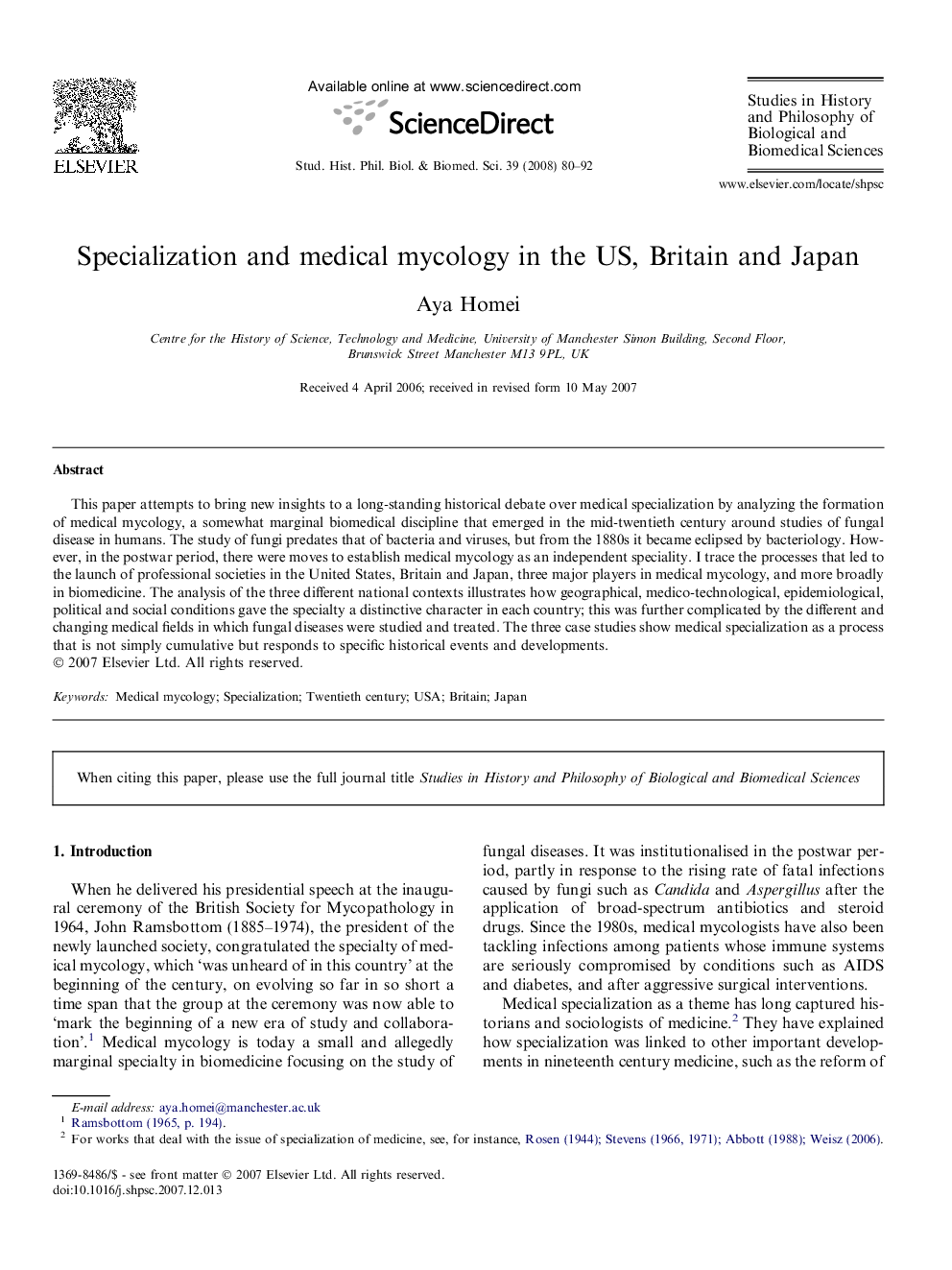| Article ID | Journal | Published Year | Pages | File Type |
|---|---|---|---|---|
| 1161894 | Studies in History and Philosophy of Science Part C: Studies in History and Philosophy of Biological and Biomedical Sciences | 2008 | 13 Pages |
This paper attempts to bring new insights to a long-standing historical debate over medical specialization by analyzing the formation of medical mycology, a somewhat marginal biomedical discipline that emerged in the mid-twentieth century around studies of fungal disease in humans. The study of fungi predates that of bacteria and viruses, but from the 1880s it became eclipsed by bacteriology. However, in the postwar period, there were moves to establish medical mycology as an independent speciality. I trace the processes that led to the launch of professional societies in the United States, Britain and Japan, three major players in medical mycology, and more broadly in biomedicine. The analysis of the three different national contexts illustrates how geographical, medico-technological, epidemiological, political and social conditions gave the specialty a distinctive character in each country; this was further complicated by the different and changing medical fields in which fungal diseases were studied and treated. The three case studies show medical specialization as a process that is not simply cumulative but responds to specific historical events and developments.
